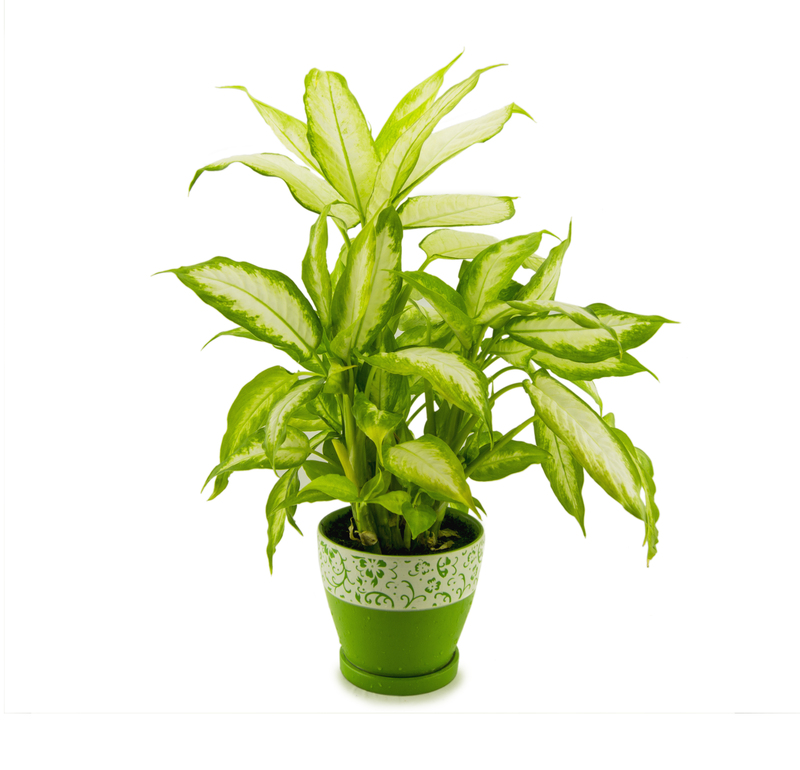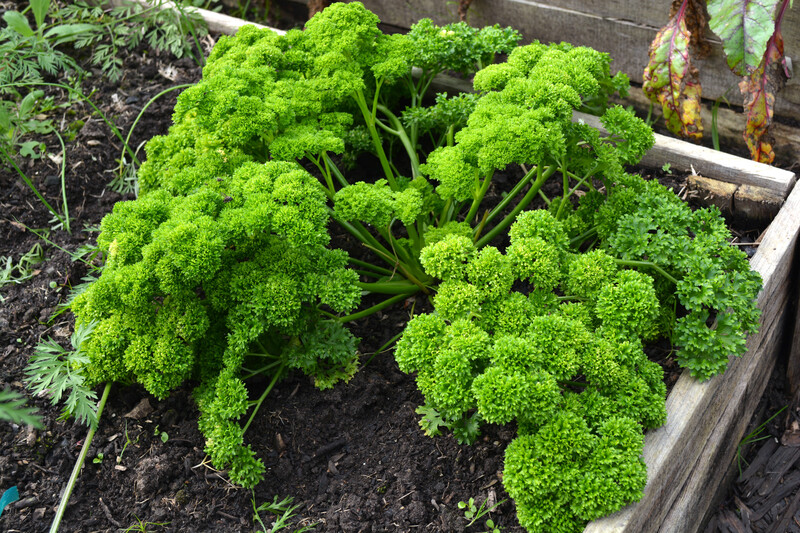Gardening Basics: 9 Tips Every Beginner Should Know
Posted on 02/09/2025
Gardening Basics: 9 Tips Every Beginner Should Know
Discovering the world of gardening can be incredibly rewarding, whether you have a small balcony, a sprawling yard, or anything in between. For those just starting out, knowing the essentials of gardening provides a springboard to success. This comprehensive guide presents nine vital gardening tips for beginners designed to help you cultivate a thriving, beautiful garden.
Understanding the Fundamentals of Gardening for Beginners
Before you dig your shovel into the soil, it's crucial to gain a basic understanding of the core principles of gardening. As a newbie, embracing these guidelines can save you time, money, and plenty of frustration along the way. Here, you'll uncover expert advice that addresses how to start a garden, choose the right plants, care for your soil, and much more.

1. Assess Your Garden Space and Conditions
Every gardening journey begins with an honest evaluation of your available space. Whether you have a compact balcony or a vast backyard, knowing your conditions shapes every decision you'll make as a gardener. Consider:
- Sunlight Exposure: Track how much sunlight each area receives throughout the day. Most garden plants require 6-8 hours of sun, but some thrive in shade.
- Soil Type: Examine your soil -- is it sandy, clayey, or loamy? Each demands distinct care and plant choices.
- Drainage: Watch how water behaves after rain. Good drainage ensures healthy roots and prevents disease.
Understanding these factors helps you plan where and what to plant, setting the stage for a bountiful garden.
2. Select the Right Plants for Your Garden
Many beginners get excited at the garden center, only to discover later that some purchased plants don't thrive. Picking the right plants for your environment is essential. Keep these tips in mind:
- Match plants to your sunlight and soil: Look for labels like "full sun," "part shade," or "shade."
- Consider your climate zone: Research your USDA Hardiness Zone to choose plants resilient to your local weather.
- Start small and simple: Begin with easy-to-grow options like marigolds, sunflowers, lettuce, radishes, or herbs such as basil and mint.
Pro Tip: Native plants are adapted to your area, require less maintenance, and attract beneficial wildlife!
3. Learn the Art of Soil Preparation
Experienced gardeners often say, "Great gardens begin with great soil." That's because healthy soil provides the nutrients and structure your plants need. Here's how beginners can tune up their soil quality:
- Test your soil: Home testing kits or local cooperative extensions can reveal pH and nutrient levels.
- Add organic matter: Work in compost, well-rotted manure, or leaf mold to boost nutrition and improve texture.
- Ensure proper drainage: If heavy clay causes water to pool, amend with organic matter or even build raised beds.
Healthy soil is foundational, so take your time and don't skip this critical step.
4. Master Watering Techniques
Many new gardeners either overwater or underwater their plants. Proper watering is one of the most essential gardening basics for beginners. Follow these strategies:
- Water deeply, but less frequently: This encourages roots to grow down where moisture lingers longer.
- Water in the morning: Early watering reduces evaporation and helps prevent fungal issues.
- Mulch to retain moisture: Applying 2-3 inches of mulch around plants limits evaporation, suppresses weeds, and insulates roots.
Pro Tip: Stick your finger into the soil up to the second knuckle; if it feels dry, it's time to water!
5. Practice Proper Planting Techniques
Knowing how to plant correctly ensures your garden gets off to the best possible start. Follow these steps for best results:
- Follow plant spacing guidelines: Overcrowding leads to poor air circulation and plant stress.
- Dig the right hole: Make holes two times wider than the root ball and deep enough so the plant will sit at the same level as in its nursery pot.
- Gently loosen roots: Before planting container plants, gently tease out tangled roots to encourage outward growth.
- Backfill and water thoroughly: Fill soil in and press gently, ensuring roots have good contact. Water deeply after planting.
6. Feed Your Plants Wisely
Your garden's health depends on regular, balanced feeding. For gardening rookies, understanding plant nutrition can make a world of difference:
- Fertilize based on plant needs: Leafy crops crave nitrogen, while fruiting types (tomatoes, peppers) need more phosphorus and potassium.
- Opt for organic fertilizers: Compost, fish emulsion, or seaweed extracts gently nourish plants and improve your soil over time.
- Don't overfeed: Too much fertilizer can damage roots and negatively affect growth.
The Golden Rule: "Feed your soil, not just your plants."
Building up organic matter in your soil naturally supports healthy, vigorous plant growth.
7. Maintain With Consistency
Consistent care is at the heart of successful gardening. By making maintenance a habit, you can prevent many problems before they start:
- Weed regularly: Weeds compete with your plants for water and nutrients. A quick weekly session keeps them in check.
- Monitor for pests and diseases: Inspect your plants closely for signs of trouble, such as holes in leaves or discoloration.
- Prune when necessary: Trimming back leggy or damaged growth encourages healthy, bushy plants.
Tip: A garden journal can help you track what works, what fails, and the timing of garden chores -- invaluable for any beginner!
8. Know When and How to Harvest
For many, the joy of gardening peaks at harvest time. Learning the ideal time and technique for picking your crops ensures prime flavor and plant health:
- Read seed packets and plant tags: Most will provide estimates for days to maturity.
- Harvest regularly: Picking fruits and vegetables promptly encourages more production.
- Use the right tools: Sharp scissors or pruners make clean cuts, reducing plant injury.
Remember, every plant is unique. Leafy greens should be picked before they get too large and bitter, while fruits often need to fully ripen on the plant for the best flavor.
9. Embrace Patience and Keep Learning
One of the most underrated basics of gardening is patience. Plants don't hurry, and neither should you. Every garden faces challenges, but the rewards of learning and growing alongside your plants are unmatched.
- Celebrate small victories: Every new sprout or flower is a sign of progress.
- Don't fear mistakes: Every gardener has setbacks, but each one brings new understanding.
- Seek knowledge: Read trusted books, watch tutorials, or connect with local gardening groups for support and inspiration.
Tip: The most beautiful gardens are often the result of years of gradual improvement and accumulated wisdom -- enjoy the process!

Bonus Gardening Basics for Absolute Beginners
As you launch your gardening adventure, keep a few final basics in mind:
- Invest in quality tools: A sturdy trowel, pruning shears, watering can, and gloves make tasks easier and more enjoyable.
- Start small: Whether one container or a couple of beds, a manageable scale ensures you don't get overwhelmed.
- Experiment with different plants: You'll soon discover which varieties suit your climate, soil, and tastes best.
- Enjoy your garden: Take time to sit back, relax, and observe the changes as the seasons pass.
Conclusion: Your Gardening Journey Begins Today
Embarking on your first garden is a wonderful adventure full of learning, growth, and fulfillment. By applying these gardening basics for beginners, you'll nurture not only beautiful plants but also a deeper connection with nature and your own local environment.
Remember, every expert gardener started as a beginner. Armed with these nine tips every beginner should know, you can cultivate a rewarding, vibrant garden space, no matter how small your first plot may be. Happy gardening!
FAQs: Gardening Basics for New Gardeners
- Q: What are the easiest plants for beginners?
A: Marigolds, sunflowers, lettuce, radishes, basil, mint, and peas are all excellent options for budding gardeners. - Q: How often should I water my garden?
A: Generally, water deeply once or twice a week, depending on weather and soil. Always check soil moisture before watering. - Q: Do I need fertilizer for my plants?
A: While some soils are rich, most will benefit from regular additions of compost or organic fertilizer, especially in the growing season. - Q: How do I prevent plant diseases?
A: Provide proper spacing, water at the base (not the leaves), and remove diseased foliage right away.
Armed with these garden basics, your journey is off to a thriving start. Dig in, explore, and watch your world bloom!

